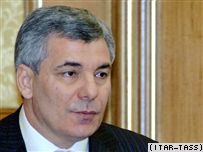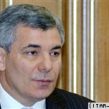
Balkar Minority Demands Greater Autonomy in Kabardin-Balkaria
Publication: Eurasia Daily Monitor Volume: 6 Issue: 151
By:

On July 26 the Balkar people sent the strongest signal yet aimed at convincing the authorities to take into account their opinions and preferences, stating that they will demand autonomous districts within Kabardin-Balkaria or if it does not work then a separate autonomous republic. The gathering of the Balkar also reserved the right to appeal to Moscow to remove the president of Kabardin-Balkaria Arsen Kanokov from his office, if he continues failing to comply with the existing legislation (Gazeta Yuga, July 30).
The Balkars are a Turkic-speaking mountainous people, who live in Kabardin-Balkaria. The population of the Balkars in the republic is 100,000 compared to the Kabardin majority of 500,000 (www.perepis2002.ru). The Balkars are ethnically similar to the Karachais, who are the majority in the neighboring Karachai-Cherkessk republic. Karachai-Cherkessia mirrors Kabardin-Balkaria’s demography as the Cherkess, who are closely related to the Kabardins are a minority in Karachai-Cherkessia. Balkars along with Karachais were deported by Stalin to Central Asia in 1944, and were not allowed to return home and have their rights as citizens restored until after Stalin’s death in 1953.
The Balkar people were very active in the early 1990’s in seeking a separate autonomous republic, but Moscow eventually opposed this idea and gradually the republican authorities convinced them to give up their demands. However, the idea of separating from Kabardin-Balkaria never ceased completely, re-awakening recently with particular force. The Balkars object to what they regard as their ethnic territories being taken over by the other ethnicities, mainly the Kabardins, while the Balkars feel that they gain nothing in return (EDM, June 16).
Soon after the popular protests erupted among the Balkars a counter-insurgency operation was introduced in the Elbrus region on June 30. It was a surprising act, as relatively little violence had been reported in this mountainous area, which traditionally attracts many tourists. One source in the Russian security services cited numerous attacks on policemen, as the reason for the security regime change, stating that thirty-two attacks had taken place during the previous two years (Interfax, June 30). Thirty-two attacks in three years, with only a few casualties hardly seem to justify such a dramatic change as the introduction of a counter-insurgency regime.
Balkar leaders perceived the move as an ill-conceived threat to their people. The leader of the Council of Balkar People’s Elders (the main political body of the Balkar opposition) Ruslan Babaev stated that the introduction of the counter-insurgency signaled "trouble for Kabardin-Balkaria, but first of all for the Balkars." Babaev criticized the police for their inadequate investigations, and according to him, no extremist-related crimes were properly investigated and no one had been convicted (Caucasian Knot, July 2). Part of the reason for the failure to bring these criminal cases to court is that the police often prefer to kill suspects in the streets. In one of those incidents on June 21 in the Elbrus region which the police claimed as a success, several alleged Islamic extremist leaders were killed (Caucasian Knot, June 21).
After less than three weeks, the counter-insurgency operation was suspended in the Elbrus region on July 16, yielding few tangible results. Even though the police claimed that they had confiscated large amounts of illegal weaponry this was not supported by other evidence, such as any corresponding arrests (Caucasian Knot, July 16). The Russian security services have habitually claimed that confiscating weaponry indicates the success of their operations, providing little evidence in relation to the security issues.
The Balkars appear to be increasingly frustrated with the acting president of Kabardin-Balkaria Arsen Kanokov. Despite the power sharing scheme, the position of the head of parliament in the republic is allotted to the Balkars, which means little in the current political system where the executive branch heavily dominates. Kabardin-Balkaria’s example is important because it is the only republic in the North Caucasus currently headed by an individual with a business background. Since the end of the 1980’s until his appointment as the president of Kabardin-Balkaria in 2005 Kanokov was deeply entrenched in the development of his business, founding Sindica in Moscow in 1991 which was the most successful of his enterprises (hwww.president-kbr.ru). Many observers praised Kanokov for the introduction of modern business ideas to develop the ailing economy of Kabardin-Balkaria, where the official unemployment rate is 25 percent and the average income is three times less than in Russia (RIA-Novosti, July 31).
In the 1990’s when the democratic pressures on the governments were much higher, politicians tended to be more sensitive to the public mood and attentive to social trends. They are now being replaced by pragmatists who may be good managers, but are inherently inattentive to the complexities of interethnic relations, and their historical legacies. Moscow regards introducing pragmatic leaders in the North Caucasus as a sort of panacea to the numerous existing economic problems in the region, but focusing solely on economic development can be misleading. This is yet another way in which the current system of governors’ appointed by Moscow reveals its flaws, which is unlikely to be alleviated without reverting to democratic elections.




